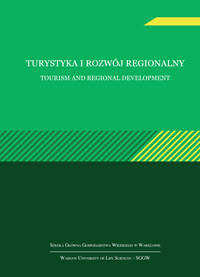Main Article Content
Article Details
Aker J.C.: Dial “A” for agriculture: a review of information and communication technologies for agricultural extension in developing countries, Agricultural Economics 2011. (Crossref)
Adnan S., Alam A., Nural S.M., Brustnow A.: People’s Participation, NGOs and the Flood Action Plan. Research and Advisory Services, Dhaka 1992.
Chambers R., Pacey A., Thrupp L.A.: Farmer first. Farmer innovation and agricultural research, Intermediate Technology Publications, London 1989. (Crossref)
Chambers R., Kenton N., Ashley H.: Participatory Learning and Action 50: Critical reflections, future directions IIED, October 2004.
Chowa C., Garforth C., Cardey S.: Farmer experience of pluralistic agricultural extension, Malawi, The Journal of Agricultural Education and Extension 2013. (Crossref)
Cornwall A., Jewkes R.: What is participatory research? Social Science & Medicine 1995. (Crossref)
Diop J.M., de Jong M., Laban P., de Zeeuw H.: Building capacity in participatory approaches, PROLINNOVA Working Paper 4. Leusden: PROLINNOVA International Secretariat c/o ETC EcoCulture 2001.
Engel P.G.: Facilitating innovation: an action-oriented approach and participatory methodology to improve innovative social practice in agriculture, Engel 1995.
Foster A.D.: Learning by Doing and Learning from Others: Human Capital and Technical Change in Agriculture, Journal of Political Economy, University of Chicago Press, December 1995, no. 103(6), p. 1176–1209 (Crossref)
Garforth C.: The challenges of agricultural extension. Starter packs: a strategy to fight hunger in developing countries? Lessons from the Malawi experience 1998–2003, 2005. (Crossref)
Hart R.A.: Children’s Participation: From Tokenism to Citizenship. UNICEF, Florence 1992.
Kabeer N.: Gender equality and women’s empowerment: A critical analysis of the third millennium development goal 1, Gender & Development 2005. (Crossref)
Kehler J.: Women and poverty: The South African experience, Journal of international women’s studies 2001.
Özçatalbaş O., Boz I., Demiryurek K., Budak D.B., Karaturhan B., AkçaÖz H.: Developing participatory extension applications in Turkey. African Journal of Agricultural Research 2011.
Pretty J.N.: Alternative Systems of Inquiry for Sustainable Agriculture. “IDS Bulletin” 1994, no 25(2). (Crossref)
Pretty J.N.: Participatory learning for sustainable agriculture. World development, 1995. (Crossref)
Satterthwaite D.D., Bajracharya R., Hart C., Levy D., Ross J., Smit, Stephens C.: Children Environment and Sustainable Development. UNICEF, New York 1995.
Downloads
- Ewa Stawicka, CSR w kontekście zrównoważonego rozwoju sektora rolno-spożywczego , Turystyka i Rozwój Regionalny: Nr 8 (2017)
Możesz również Rozpocznij zaawansowane wyszukiwanie podobieństw dla tego artykułu.

Utwór dostępny jest na licencji Creative Commons Uznanie autorstwa – Użycie niekomercyjne 4.0 Międzynarodowe.





